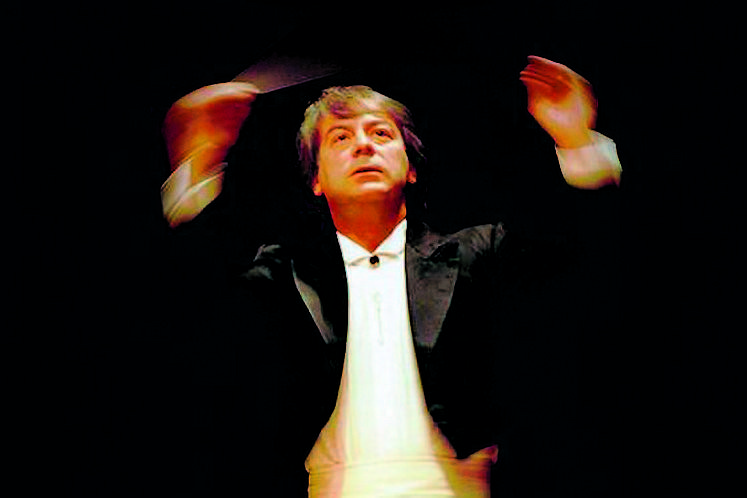- November 26, 2024
-
-
Loading

Loading

In the 11 years I’ve lived here, I’ve come to regard the Sarasota Orchestra as one of the finest instrumental ensembles I’ve heard. Young, vibrant, vigorous and highly musical, it is — as they say in the business — a great band. This weekend, my estimate of its members rose even higher as they, miraculously, pulled one of the most poorly conducted concerts I’ve ever witnessed out of a bag like a bunch of magic rabbits.
Alessandro Siciliani, who used to be the conductor of the Columbus (Ohio) Symphony, has a bio that reads a bit like a travelogue but doesn’t put him in one place more than one or two times. Some of his past reviews don’t read much better. Still, one would think he’d be able to lead an excellent ensemble and give a credible reading of two works familiar to him: Martucci’s “Notturno” and Verdi’s Sinfonia from “Aida,” as well as the Beethoven Symphony No. 9, a work all too familiar to most audiences. Not so.
Attending one of this past weekend’s performances was a perfect lesson in what a conductor does. A good ensemble — and the Sarasota Orchestra is more than just good — can play all the notes and, with a little help from the concertmaster, start and stop together. What the conductor does is mold, shape and give insight into the music. The conductor guides the musicians so the notes on the page become alive with his or her interpretation of what the composer meant. The conductor must, at times, be a good traffic cop, making sure wrecks don’t occur at awkward moments when the composer has written a fermata, asking that a note be held, or a ritardando that slows things down a bit.
In the Martucci, a pretty piece that sounds like an Italian take on Mahler’s famous Adagietto, there was little focus. Although Siciliani managed to hold things together at an uncannily slow pace, it was just a blur of meanderings, like a Delius work gone amok. The Verdi was equally muddy except that the opening pianissimo portion for strings was played beautifully by the violins, and the solo clarinet soared in the hands of principal Bharat Chandra.
The Beethoven, however, received a reading that, because of the conductor, almost fell apart several times. Cues, if decipherable, were sometimes afterthoughts. There was no focus, no sense of interpretation and no real understanding of the massive work. The excellent Festival Chorus, which Joseph Holt had thankfully well-trained, was hung out to dry without a word mouthed or even a nod of the head to bring them in or cut them off.
The solo quartet, placed by Siciliani for unknown reasons behind the orchestra, managed to make itself heard: soprano Heather Spence, who has a voice that could etch glass sharply but is perfect for the Ninth Symphony; Gabriela Garcia, who had the unenviable task of singing the alto solos, which are almost inaudible no matter who sings them; Yeghishe Manucharyan, an excellent tenor; and Mikhail Svetlov, a rather wooly bass.
Singers and instrumentalists were all heroic because Siciliani’s grand display of gymnastics and gyrations served to distract rather than help. Having this encounter is painful, for the musicians as well as the audience. But it can also be a great learning experience, and I’m proud of the Sarasota Orchestra and Festival Chorus for having come through as well as they did. If they can do this, they can do anything.